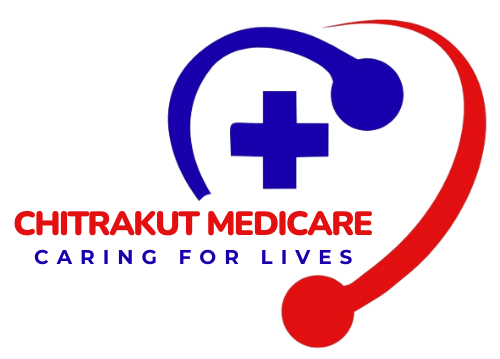
Paediatrics: Caring for
the Health of Our Future
Pediatrics: Caring for the Health of Our Future
Introduction
Children represent the foundation of our future. Their health, growth, and well-being determine the strength of tomorrow’s society. Unlike adults, children are constantly developing—physically, emotionally, and mentally. This is why pediatrics, the branch of medicine dedicated to infants, children, and adolescents, plays such a crucial role. Pediatric care is not just about treating illnesses; it is about providing preventive healthcare, monitoring developmental milestones, and ensuring holistic growth.
In this comprehensive blog, we will explore the world of pediatrics—its importance, common health concerns, preventive practices, and the role parents and pediatricians play together in shaping a healthier future for children.
The Importance of Pediatrics
Pediatrics is more than medical science; it is the art of nurturing life. Pediatricians specialize in diagnosing and treating childhood illnesses, guiding parents on nutrition and lifestyle, and ensuring every child gets the best start in life.
Why is Pediatric Care Essential?
- Early Detection of Issues – Children grow at a rapid pace, and any developmental delay, congenital defect, or chronic illness can be identified early with regular pediatric check-ups.
- Preventive Healthcare – Vaccinations, growth monitoring, and lifestyle counseling ensure that children are protected against preventable diseases.
- Child-Centered Approach – Pediatricians are trained to communicate with children and parents in a way that reduces fear and builds trust.
- Holistic Well-being – Pediatric care covers physical, emotional, behavioral, and psychological development.

Growth and Development in Children
Every child is unique, but pediatricians follow general growth and developmental milestones to ensure children are on track.
Key Developmental Stages
- Infancy (0–12 months): Rapid growth, sensory development, motor skills, and bonding with parents.
- Early Childhood (1–5 years): Speech development, basic learning, socialization, and fine motor skills.
- Middle Childhood (6–12 years): Academic learning, emotional maturity, physical growth, and personality shaping.
- Adolescence (13–18 years): Puberty, identity formation, independence, and mental health challenges.
Pediatricians track height, weight, cognitive skills, social interactions, and emotional well-being at each stage to ensure healthy progress.
Vaccination: Protecting the Future
Immunization is one of the greatest achievements in medicine. Vaccines protect children from life-threatening diseases like measles, polio, diphtheria, and meningitis.
Common Vaccines in Childhood
- BCG (Tuberculosis)
- Polio (Oral and Injectable)
- DTP (Diphtheria, Tetanus, Pertussis)
- Hepatitis B
- MMR (Measles, Mumps, Rubella)
- Chickenpox
- Rotavirus
- Influenza
- HPV (for adolescents)
Myths vs. Facts
- Myth: Vaccines cause autism.
- Fact: Numerous studies prove vaccines are safe and effective.
- Myth: Natural immunity is better.
- Fact: Diseases can be fatal; vaccines are safer.
Vaccination schedules are an essential part of pediatric visits, ensuring timely protection against infections.
Common Pediatric Health Concerns
Children face health challenges that differ from adults. Some of the most common include:
- Respiratory Infections – Colds, coughs, asthma, and pneumonia.
- Gastrointestinal Issues – Diarrhea, dehydration, and food intolerances.
- Allergies – Food allergies, eczema, and seasonal allergies.
- Nutritional Deficiencies – Anemia, Vitamin D deficiency, obesity.
- Injuries & Accidents – Falls, fractures, burns—requiring pediatric emergency care.
- Chronic Conditions – Diabetes (Type 1), congenital heart disease, epilepsy.
- Mental Health Issues – Anxiety, depression, ADHD, and learning disabilities.
Pediatricians combine medical treatment with parental guidance to manage these effectively.
Pediatric Emergencies Parents Should Know
Every parent fears emergencies. While pediatricians provide regular care, emergencies require immediate response.
Examples of Pediatric Emergencies
- Severe difficulty in breathing
- High-grade fever with seizures
- Uncontrolled bleeding
- Severe dehydration
- Allergic reactions (anaphylaxis)
- Head injuries or fractures
Parents should be aware of basic first aid and always keep emergency numbers handy. Pediatricians often educate parents about these scenarios during routine visits.
Adolescent Pediatrics: Special Focus
Teenagers face a unique set of challenges. Pediatric care for adolescents focuses not only on physical health but also on mental and emotional well-being.
Key Concerns in Adolescent Health
- Puberty & Hormonal Changes
- Menstrual Health in Girls
- Body Image & Eating Disorders
- Substance Abuse Awareness
- Mental Health: Anxiety, Depression, Peer Pressure
- Sexual & Reproductive Health Guidance
A pediatrician’s role during adolescence is not just medical—it also involves counseling, guidance, and building trust.
The Parent–Pediatrician Partnership
Pediatrics works best when there is active collaboration between parents and doctors.
- Ensuring routine check-ups and vaccinations.
- Encouraging healthy eating and physical activity.
- Monitoring behavior and emotional changes.
- Avoiding overuse of antibiotics without medical advice.
- Creating a safe and nurturing environment.
When parents actively participate, pediatric care becomes a holistic journey rather than just hospital visits.
Preventive Pediatrics: Building a Healthy Future
Prevention is always better than cure. Preventive pediatrics includes:
- Immunization programs
- Nutritional education
- Growth monitoring
- School health check-ups
- Parental counseling
- Lifestyle modification programs
These efforts reduce childhood illness rates and ensure healthier adulthood.
Technology and Pediatrics
Modern pediatrics is evolving with technology. From digital health records, telemedicine consultations, growth-tracking apps, to AI-based diagnostic tools, technology is making pediatric care more accessible and accurate.
